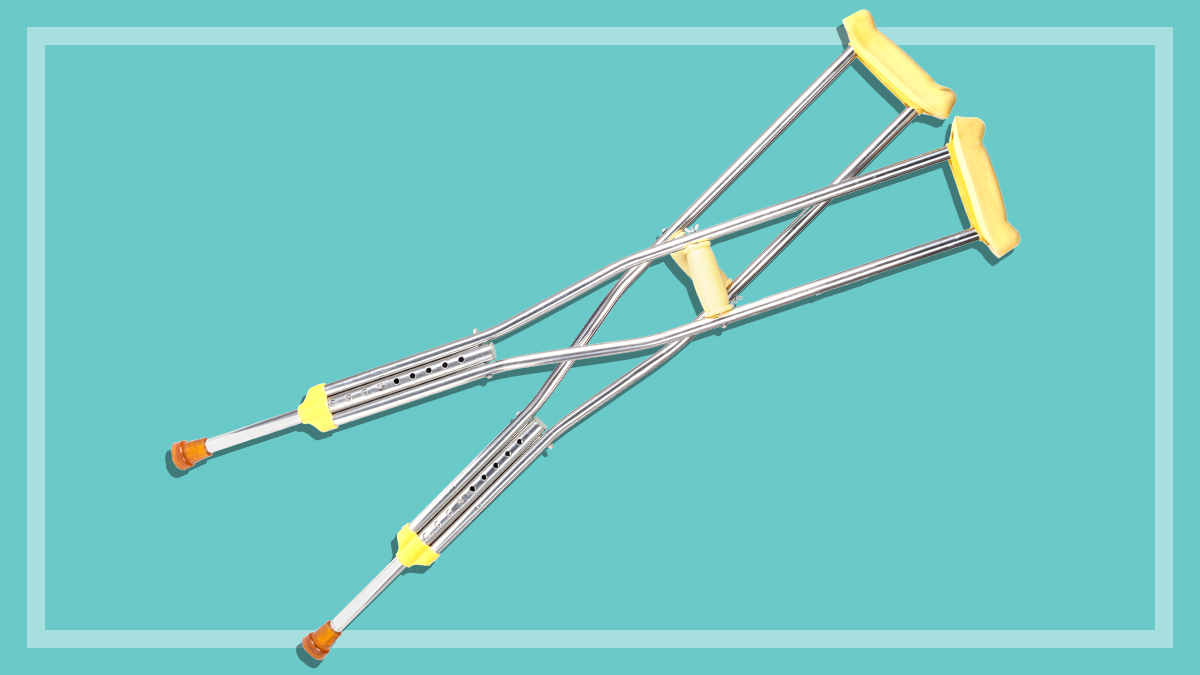Get our independent lab tests, expert reviews and honest advice.
How to access free or more affordable mental health care

Need to know
- You can access up to 10 Medicare-subsidised mental health treatment sessions per calendar year
- More than half the private health insurance Extras policies we checked offer cover for psychologist visits or counselling sessions
- Depression, anxiety and eating disorders are some of the main mental health conditions for Australians under 30
On this page:
- Ask your doctor about mental health treatment
- Does health insurance cover mental health?
- Better access to in-hospital care through health insurance
- Young people and hospital psychiatric care
- Mental health cover checklist for hospital insurance
In an average year, one-quarter of Aboriginal and Torres Strait Islanders and one in five other Australians experience anxiety, depression and other mental health conditions that prevent them and their families from going about their regular lives.
It’s therefore crucial to be able to access mental health services when you need them.
Up to 10 Medicare-subsidised individual counselling sessions and up to 10 group sessions are now available through your GP.
And if you have extras health insurance, it can also help cover visits with a psychologist.
In some cases, in-hospital psychiatric treatment will be required. Public hospital psychiatric care services are often overstretched, but if you have private health insurance, it can cover you for care in a private hospital.
Ask your doctor about mental health treatment
If you or your loved ones experience mental health problems, it’s a good idea to visit your GP. Your GP can assess and diagnose conditions, and work with you to create a mental health treatment plan. The plan includes treatment options and goals, and is kept private between you and your GP.
Through the plan, you’re eligible for Medicare-subsidised visits to a mental health professional such as a psychologist. To begin with, your GP will prescribe six sessions, and you can get four more if you need them.
Your GP can assess and diagnose conditions, and work with you to create a mental health treatment plan
Social workers can also help with short-term counselling. You can see a social worker if you’re dealing with mental health concerns, have thoughts of suicide or self-harm, or experience a personal or family crisis.
There are also some extra services for specific groups of people that you can get referred to by your GP:
- Aboriginal and Torres Strait Islanders have access to an additional five sessions that can be used for mental health or other therapies such as physiotherapy.
- Women who are pregnant or were pregnant in the past 12 months have access to three counselling sessions.
Appointments can be face to face or via video, phone or online.
Depending on the practitioner you visit, you may get bulk billed or receive a rebate towards the cost. To find a practitioner, visit beyondblue.org.au.
Does health insurance cover mental health?
There are two types of health insurance:
- Extras insurance offers cover for services out of hospital, such as sessions with a psychologist.
- Hospital insurance offers cover for services in a hospital – all policies include in-hospital psychiatry in a public hospital, while Gold policies include cover in a private hospital.
Psychologist visits and extras health insurance
We looked at standalone extras policies in NSW and found that more than half of them included cover for psychologist visits or counselling sessions.
There is great variation in the level of cover for this service, so look at your policy details closely. For example, the benefits for the first visit can be as little as $20 or more than $200. Benefits for the second and subsequent visits are usually smaller.
Look for policies that instead pay a percentage of the bill, often ranging from 50% to 80% of your cost. This can work out better for you depending on what your psychologist charges.
Next to what benefit you get for each visit, you also need to check the maximum annual benefit.
The maximum benefit you may receive could be more than $1000, but this might be a combined benefit for a range of services such as occupational therapy, eye therapy (orthoptics), exercise physiology, dietary advice, birth and postnatal classes, hearing services (audiology), speech therapy and podiatry.
So if you use any of these services, you’ll have less to use for psychology.
Bupa vs Medibank cover for mental health
We looked at the most expensive standalone extras policies from Bupa and Medibank (both funds have a number of other extras policies). Use our online tool to compare health insurance policies from more than 40 health insurers and find cover that’s right for you.
| Fund & policy | Premium | Limit per year | 1st visit | Other visits |
|---|---|---|---|---|
| Medibank Top Extras 90 |
$164 |
$500 |
$116 |
$86 |
| Bupa Top Extras 90 |
$186 |
$750 |
$116 |
$108 |
Better access to in-hospital care through health insurance
When it comes to in-hospital psychiatric care, the public system is often stretched thin. Health insurance reforms in 2019 created better access to these services through your private health fund.
Private hospital cover for in-hospital psychiatric services is usually only available with an expensive Gold policy. Since the reforms, as long as you have any hospital cover (even a Basic cover level, which hardly covers anything at all), you can upgrade to a policy that covers in-hospital psychiatric services without serving a waiting period, should you need this cover unexpectedly.
- If your policy does not cover in-hospital psychiatric care, you can upgrade to a policy that covers it without a waiting period once in your lifetime (you need to have already held a hospital insurance policy for at least two months). Check out the cheapest Basic health insurance policies we’ve found.
- You can even do this when you’ve already been admitted to hospital – if you upgrade within five business days after entering hospital, you’ll be covered for your full hospital stay.
If you think you need cover for in-hospital psychiatric services, it’s a good idea to upgrade as soon as you can, as it’s not always practical to upgrade once you’ve been admitted to hospital.
“We have some concerns that five days may not be enough time to make arrangements from the date of admission,” says Dr Kym Jenkins, President of the Royal Australian and New Zealand College of Psychiatrists.
Private hospitals may ask for payment in advance, which could be a financial burden. It could also be complex to find the right policy to upgrade to, and it may mean switching health funds if your health insurer doesn’t offer a suitable policy or doesn’t have an agreement with the hospital you’re admitted to.
It can also take some time to find the right policy, as you’ll want to make sure it covers all of your needs. To find the best policy, compare health insurance with our easy tool and weigh up your options.
First Nations people even more affected by mental health issues
One in four Aboriginal and Torres Strait Islander people experience anxiety, depression and other mental health conditions each year (compared with one in five other Australians).
Suicide is the biggest killer of young Australians (15 to 24 years old). Suicide rates for Aboriginal and Torres Strait Islander people aged 24 and under are more than three times as high as for other Australians.
Phone number for Lifeline: 13 11 14
Phone number for 13 YARN (for Aboriginal and Torres Strait Islander people): 13 92 67
Young people and hospital psychiatric care
Young people (15–24 years old) are among the most affected by mental health conditions, and suicide is the biggest killer of young Australians, even before car accidents.
The situation for First Nations people is even worse: suicide rates for Aboriginal and Torres Strait Islander people aged 24 and under are more than three times as high as for other Australians, according to the Australian Institute for Health and Welfare.
Young people also have the highest rate of hospitalisation for intentional self-harm. In 2022, one in three people under 30 who had a private health insurance claim over $10,000 were hospitalised for mental health, according to Private Healthcare Australia.
There were over 7000 mental health claims of more than $10,000 by under 30s. Their average stay in hospital was almost a month (26 days), and more than 70% of them were female.
The main conditions treated were:
- depression
- anxiety
- eating disorders
- substance abuse.
- bipolar disorder.
Mental health cover checklist for hospital insurance
If this cover is important to you, check the policy’s cover carefully for the following options.
- In-patient psychiatric care in a public and private hospital. Is there an annual maximum number of admissions or days covered in hospital? And does it cover readmission to hospital within days of a previous hospital stay?
- Day programs in private hospitals. Is there any limitation on how many hours per visit are covered?
- Outreach nursing. Can you get cover for a day program and outreach nursing at the same time?
- Specific treatments, such as electroconvulsive therapy, to treat severe depression.
- For all public and private hospitals, not just a selection. Different private hospitals specialise in the treatment of different mental health conditions, and you want to be able to access the best one for your needs.
If you have a complaint about your health fund, contact the Private Health Insurance Ombudsman on 1800 640 695.
For immediate mental health assistance, these services are available 24/7:
- Lifeline: 13 11 14
- 13YARN; lifeline service for Aboriginal and Torres Strait Islanders): 13 92 76
- Kids Helpline: 1800 55 1800
- Beyond Blue: 1300 22 4636





